A blown-up lab experiment.
We are never going to get that purchasing power back.
Gee, how did legacy media lose all credibility?
War, huh, yeah
What is it good for?
"The last thing the Fed wants to have happen is to end up in a 1970's/1980's Fed conundrum where inflation gets imbedded."
Oh yeah. God forbid inflation gets embedded.
I just want all the Gen Z'ers making videos in their cars crying about how they can't afford anything to blame the right people: The Fed and Congress (and the voters)
Doesn’t seem like a top in gold: At a Brooklyn Pawnshop, Customers Are Flooding In to Sell Gold “People are using gold as an ATM they never had”
The IMF is getting concerned
“Without decisive fiscal efforts, postpandemic fiscal policy normalization may remain incomplete in the years to come. Global public debt is projected to approach 99 percent of GDP by 2029, driven by China and the United States where, under current policies, public debt is projected to continue rising beyond historical peaks.”
“The $1.8 trillion deficit, the $1.2 trillion supplemental spending bill that you talked about - that is a deficit of six and a half percent, so, in other words, the government is spending more than its taxes to the tune of six and a half percent of GDP, and they have to borrow that money in order to make up that difference. Put that in perspective - other than 2009, at the worst point of any recession before 2009, we didn't even spend six a half percent of GDP, and that's usually when the government is panicking, and the economy is in a deep dark hole. Today this is like the normal run rate for the economy to be having deficits being that big.”
Michael Howell
“Why does Janet start to fund large amounts of the deficit through bills? Because it's easier, and it's a way of monetizing the debt. Isn't that what the gold market is telling us right now? These are the concerns that are being spelled out. You know, gold started to move well before these geopolitical tensions. Gold is moving because we seek monetary inflation.”
Michael Kao
On The Tape Investing Podcast with Michael Kao
“You can hold two of the three constant, and the three legs are free capital mobility, free exchange rates, and monetary autonomy, right? So the Japanese economy being what it is, predicated upon open capital flows, I think it's fairly safe to eliminate the capital controls from the decision tree. I think it boils down to a dilemma, and the dilemma is, okay, do they want to fix the exchange rate, or do they want to protect and hold the line on JGB’s [Japanese government bonds]…” - Kao
“The problem with the BOJ is that it owns I think 54% of all outstanding JGB’s, so when they say they want to exit yield curve control, how can they do that? I think this is literally a choice of bad versus badder. If they let the JGB bonds actually find their their market-determined rate, it will essentially bankrupt the BOJ, not to mention all of the other institutions that own them. Their other choice is to let the Yen devalue, and frankly I think that's the less bad choice, because while it imports commodity-based inflation for a net oil-importing country like Japan, on the other hand, they're also a goods net exporter, so they benefit from a weaker Yen. I think it's definitely the less bad choice, and we can use that same argument for essentially the ECB and the PBOC as well.” - Kao
“Yes, weakening has historically has been risk-on,
but this to me is potentially a blown-up lab experiment.”
“If Japan has to defend or tries to defend the Yen, they obviously burn up the reserves in doing so, and might become a forced seller of US Treasury bonds, right, but the bigger repercussion that I'm looking at, and worried about honestly, for the world is that if if you look at the Yen to Yuan rate, it's making the Yuan uncompetitive, and China is is already saddled with a structural secular problems that might not even be solved with devaluation. The problem is that I see the Yen breaking out here potentially being a spark for a round of competitive devaluations.” - Kao
Russell Mitchell
“If you look at a monthly chart of the Indian Rupee - I mean, it's just a currency that always wants to go down.” - Rupert Mitchell
“If you've got literally millions of 70kw battery backs that need to be produced, you know, yeah, there is enough lithium on the planet, there isn't potentially enough of the other battery metals available, but I'm not sure that we're all comfortable living with the consequences of mining that quantity of that stuff that needs to produce those batteries. Having these incredibly efficient petrol engines supported with smaller battery packs - which is what hybrid technology is - may end up looking like the greenest solution of the lot.”
“I think that Central Bankers are full-time employed these days in the volatility compression game. They want the VIX down every day, they want the MOVE index down every day. They're doing a really good job of it, right, because the only thing that upsets the apple cart with respect to their game plan - I think which is just to deflate away all of this debt that we've got - they only get away with that if there are no nasty surprises.”
“On gold - actually, as a US investor, yeah, it's been pretty boring for the last couple of years, but try telling a Chinese or a Japanese or an Australian
holder of gold that. They're dealing with rotator cup injuries from fist-pumping, because they've done so well on their gold investments.”
“This sort of rising tide for real assets is has to be at the top of your thinking all the time”
Jeff Snider
“Many families have been left further and further behind by consumer prices. As we hear all the time [not from financial media though], consumer prices have grown much faster and farther than wages have. Now the top end of the economic spectrum - they've done pretty well. In fact, they've done really well if you own stocks too, but too many people have been left out of that.”
“We are never going to get that purchasing power back.”
Snider discusses the “Large Bank Credit Card and Mortgage Data 2023 Q4 Narrative: Q4 2023 Insights Report.”
“Credit card performance further deteriorated at the end of 2023, with firms recording the worst 30+, 60+, and 90+ account-based days past due levels in the reporting series.”
Unfortunately, their series only goes back to 2012.
Snider: “We know from other series that this is typical behavior in the early stages of an economic setback”
"This pre-1983 methodology makes it possible to measure the cost of housing as faced by the prospective buyer...This measure produces estimates suggesting that headline CPI would have peaked at 18 percent in November 2022."
My auto insurance - same everything, no tickets - went up 41%. I’ve heard from others with similar results.
Hey - you guys hear about this “private credit” thing?
One of St. Louis’ Tallest Office Towers, Empty for Years, Sells for Less Than 2% of Its Peak Price “One of the tallest towers in St. Louis that sold for $205 million in 2006 has changed hands again this week — for about $3.6 million…The former One AT&T Center, a 44-story high-rise totaling 1.46 million square feet at 909 Chestnut St., is now owned by Boston-based Goldman Group. The firm bought the property via CoStar Group's Ten-X auction exchange from SomeraRoad Holdings, a commercial real estate investor and developer that paid just $4.5 million for it two years ago. On a per-square-foot basis, the tower’s value over 18 years dropped from about $140 to $2.50, according to CoStar data.” (Here’s a recent short podcast on the situation in St. Louis)
“Currently, VineBrook owns more than 24,000 single-family homes nationwide…Now, the company faces new pressure in the form of debts accrued by its rapid and massive expansion…for the first time in its four-year history, VineBrook’s rampant purchasing of single-family homes throughout the region has shifted to a sell-off as it struggles to pay what’s due this year…VineBrook said it would sell at least 1,700 homes nationwide to pay the debt balance. Experts say it could be a sign of what’s to come for other real estate investors in the single family rental market.” Let’s hope so. I mentioned Vinebrook back in December.
Very interesting article about “the Etak Navigator, a truly revolutionary product and the world’s first practical vehicle navigation system,” via varunorcv.
The Peshtigo Fire

"At that hour, half past nine o'clock in the evening, at apparently the same moment, at points hundreds of miles apart, in three different states, Wisconsin, Michigan, and Illinois, fires of the most peculiar and devastating kind broke out, so far as we know, by spontaneous combustion."
Adam Smith on War Finance
“Wars would in general be more speedily concluded, and less wantonly undertaken. The people feeling, during the continuance of the war, the complete burden of it, would soon grow weary of it, and government, in order to humour them, would not be under the necessity of carrying it on longer than it was necessary to do so. The foresight of the heavy and unavoidable burdens of war would hinder the people from wantonly calling for it when there was no real or solid interest to fight for.”
“As I get older, I'm more on the historian side of political science. In social science, once you play the meta game of being a social scientist, you get disillusioned really fast.”


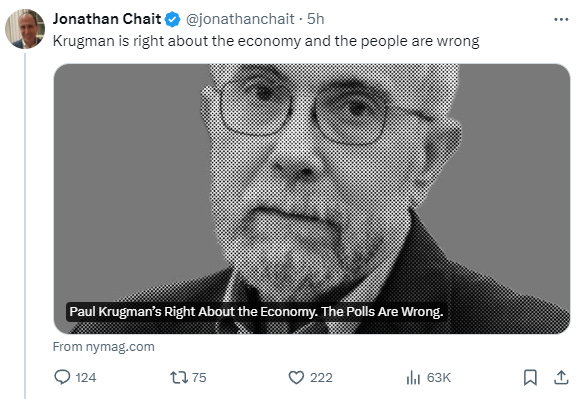

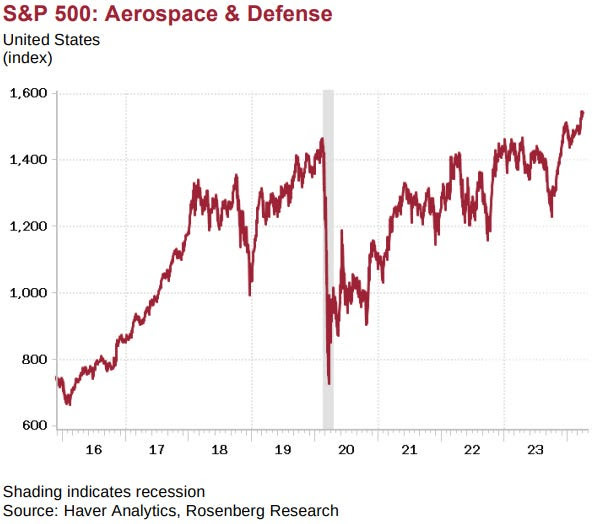


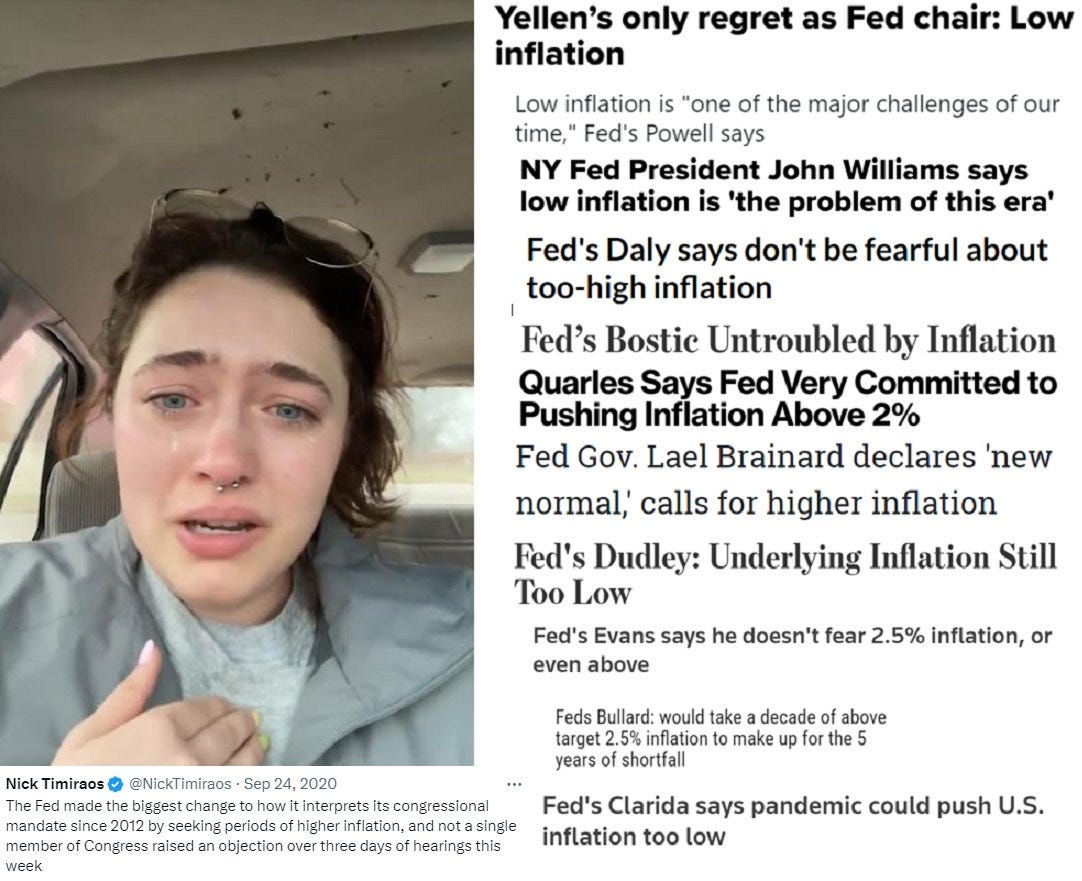
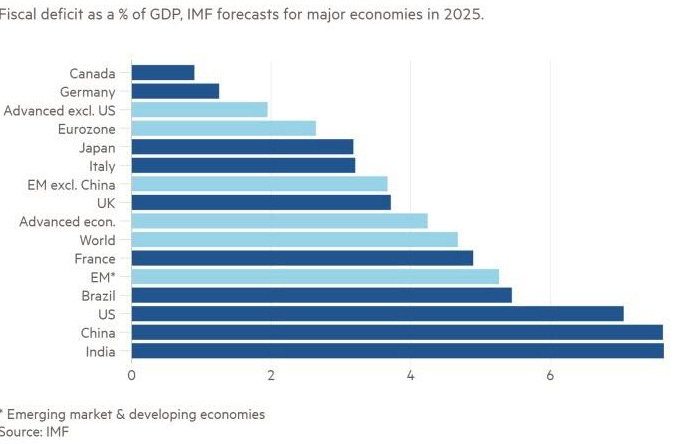
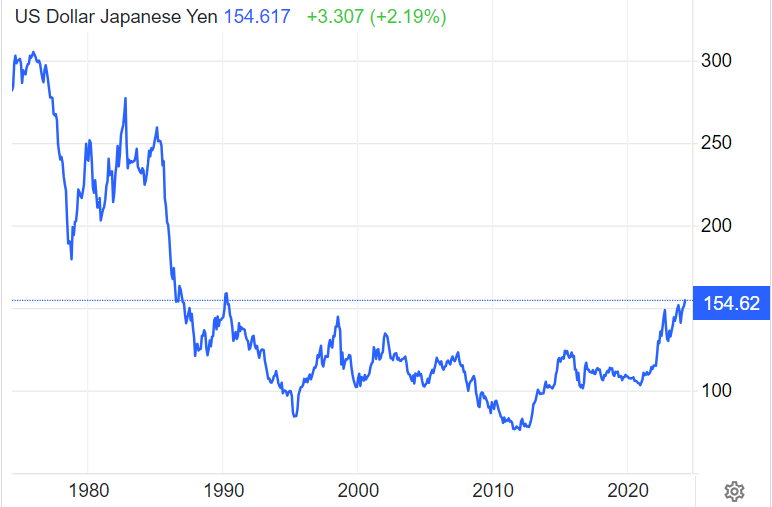
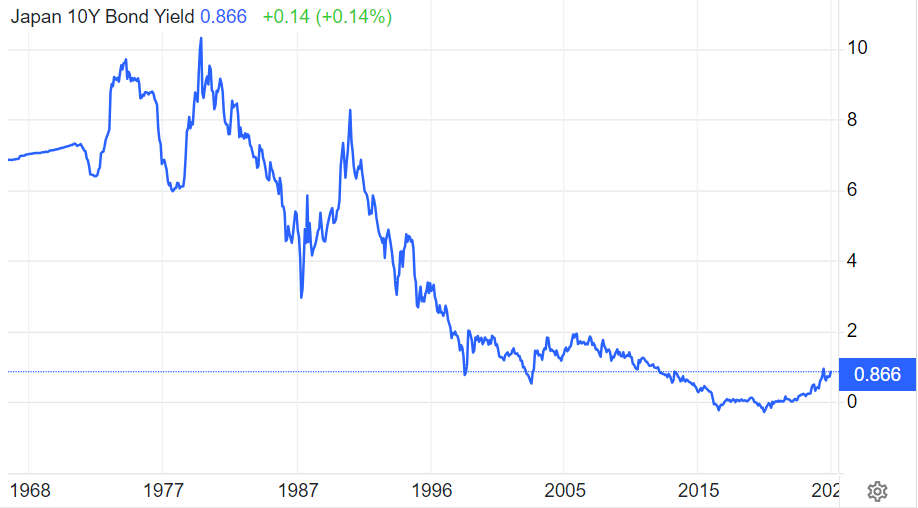
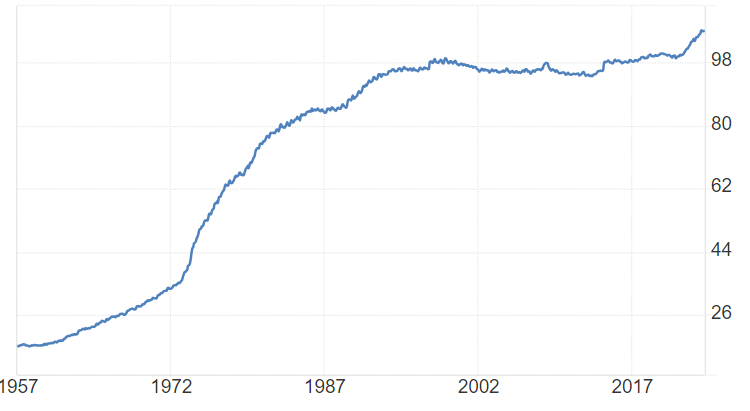
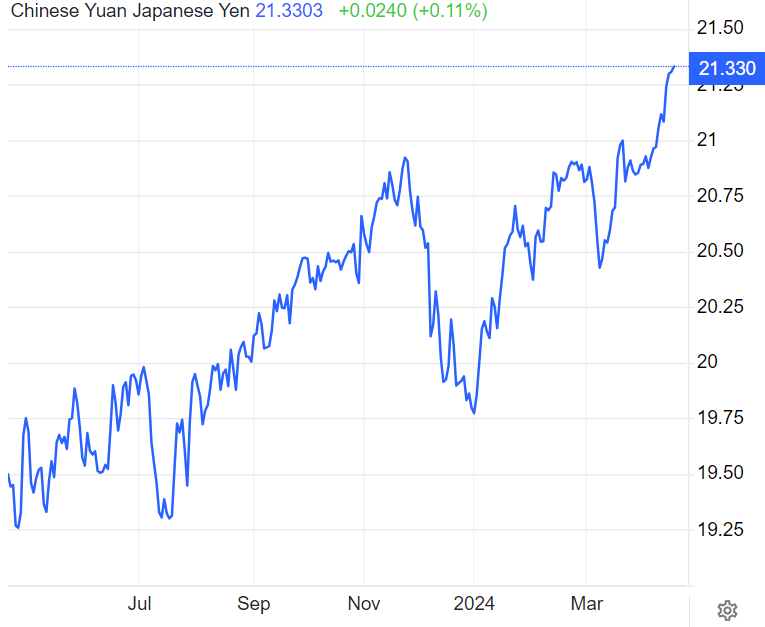
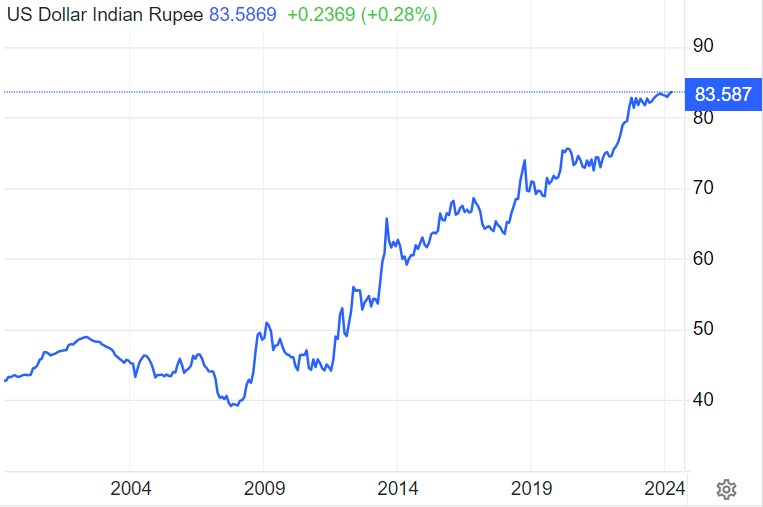
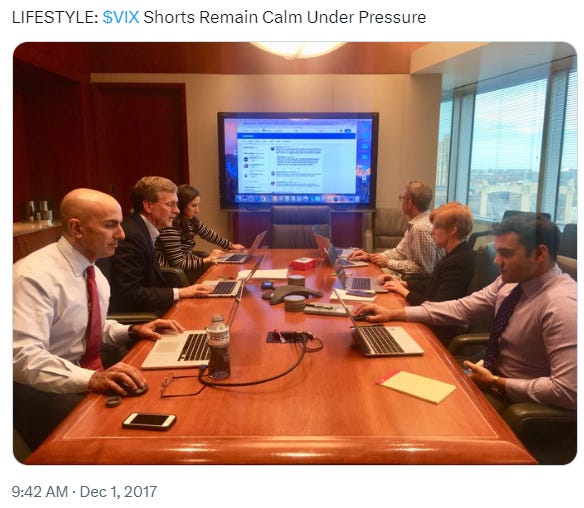
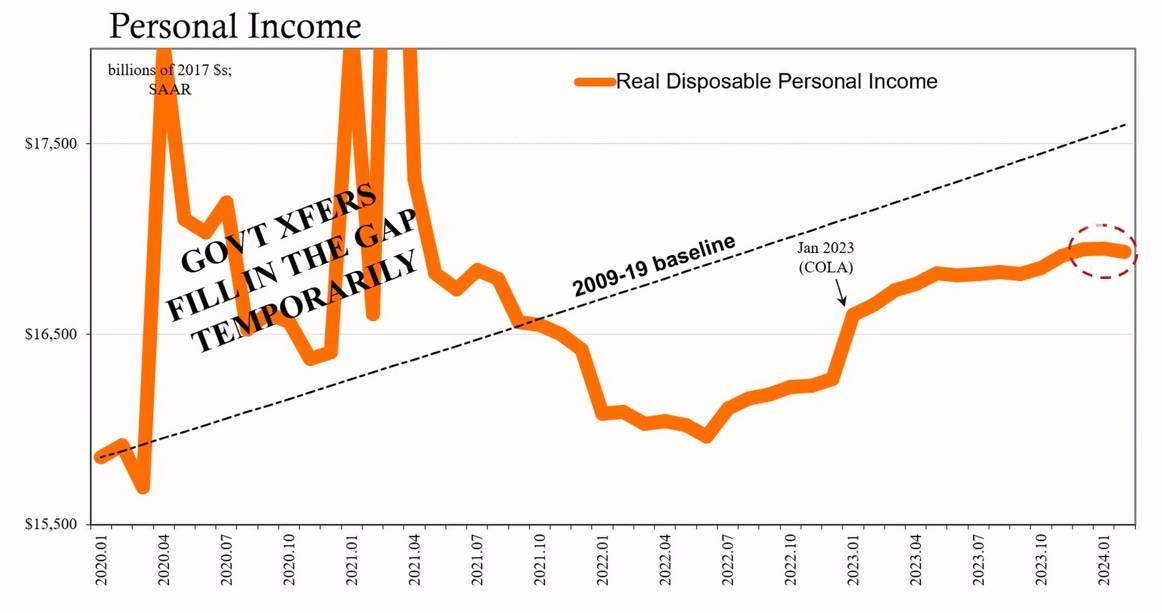
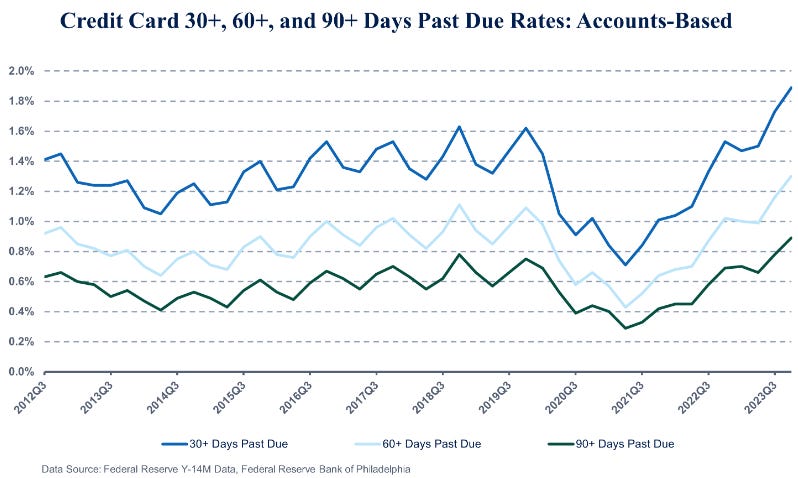
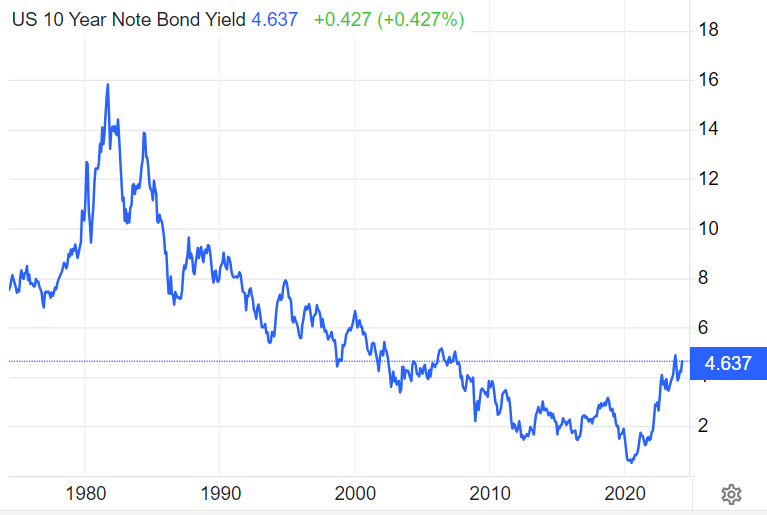

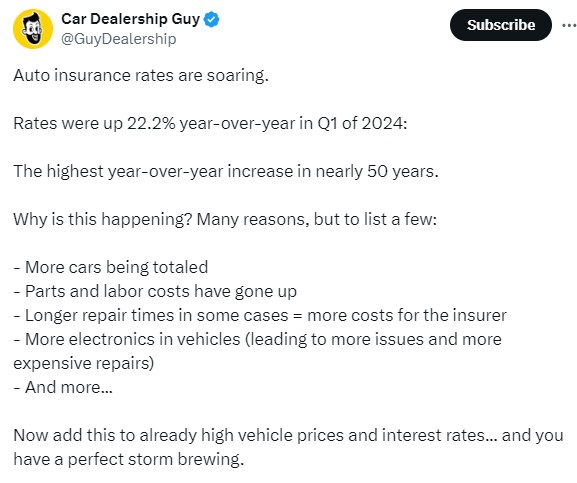


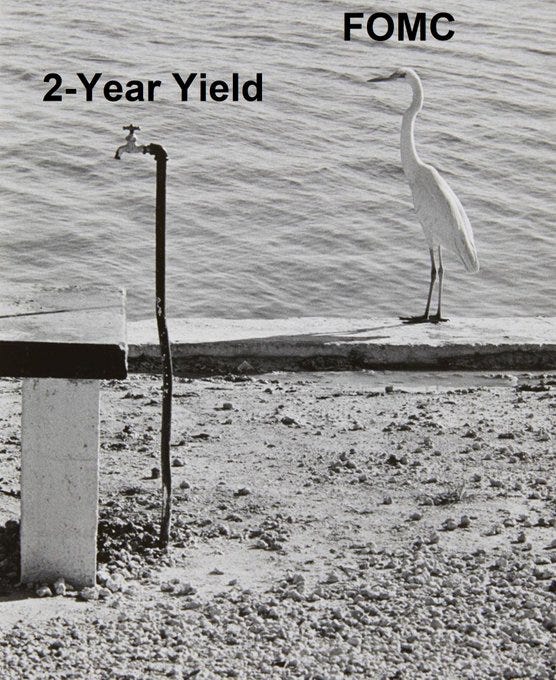
If you would use a log chart, our inflation will be much less.
I had never seen “Percent” but always assume that any deals that must be shopped to the (relative) plebes through crowdfunding/syndication — I’m sorry, democratization of fine art, real estate, wine, whatever — are complete dreck. I want no part of any such club that’d have me as a member.